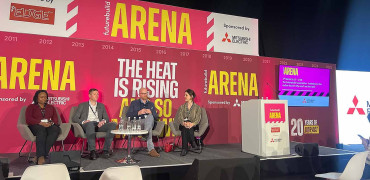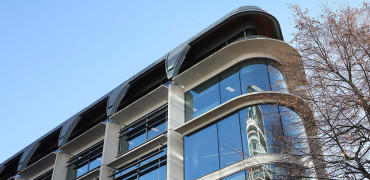This year is a milestone of sorts for me, I started my refrigeration apprenticeship in 1985 as a 16-year-old school leaver. I knew I wanted to enter an engineering role, but I had not specifically considered refrigeration at the time.
Growing up in Northampton, the industries that many went to were boot and shoe manufacturing, Express Lifts, Blackwood Hodge (heavy earth moving equipment), British Timken (bearings) and while there is still a thriving shoe industry, all the others have gone to the wall, leaving behind iconic structures such as the Express Lift Tower.
My place of work was, at the time, the largest abattoir in Europe. A great place to learn about refrigeration if not to everyone’s tastes, this is also no longer there, the site now being covered in housing.
Over the past 40 years, air conditioning and heat pump technology have undergone remarkable transformations, making them more energy-efficient, environmentally friendly, and technologically advanced.
These improvements have not only enhanced comfort but also contributed significantly to reducing energy consumption and greenhouse gas emissions placing our industry at the centre of the decarbonisation requirements we all must achieve as we reduce our energy consumption, build better buildings and retrofit those that are already being used and will be for many more years to come.
For school leavers today, the future is one of electrically driven solutions that deliver what we all need
Energy Efficiency and Performance
So what are the changes I have seen over this time?
One of the most significant developments has been the improvement in energy efficiency. In the 1980s, air conditioners and heat pumps had relatively low Seasonal Energy Efficiency Ratios (SEER).
Today, modern systems boast SEER ratings exceeding 20, compared to older models that hovered around 8-10.
This jump in efficiency is due to advancements such as variable-speed compressors, smart thermostats, and improved refrigerants.
Refrigerants
Another major shift has been the transition to environmentally friendly refrigerants. Older systems relied on chlorofluorocarbons (CFCs) and hydrochlorofluorocarbons (HCFCs), such as R-22, which were found to deplete the ozone layer.
The largest system on our site at the time used R502 (remember that?!).
In response to global environmental agreements like the Montreal Protocol, manufacturers have transitioned to hydrofluorocarbons (HFCs) and, more recently, hydrofluoroolefins (HFOs) and natural refrigerants such as R290 (Propane) and R744 (CO2) which have a significantly lower global warming potential.
Smart and Connected Systems
The rise of smart technology has also revolutionised air conditioning and heat pumps.
Wi-Fi-enabled thermostats and integrated smart home systems now allow users to control their HVAC systems remotely.
AI-driven predictive maintenance helps diagnose issues before they become major problems, improving system longevity and reducing maintenance costs.
The Future of HVAC
Looking ahead, heat pumps are now understood to be part of the transition we need to make at the pace required.
Innovations such as lower ambient heat pumps, higher flow temperatures and connected systems.
As demand for sustainable climate control solutions grows, continued advancements in HVAC technology promise even greater efficiency and environmental benefits in the years to come.
They will be required in our transition to AI, in data centres, in our homes, medical, manufacturing, learning and leisure locations, hopefully keeping me busy for a bit longer yet!
For school leavers today, the future is one of the next evolution in energy, electrically driven solutions that deliver what we all need, heating, comfort, productivity, a cold chain for pharmaceuticals and food as well as the infrastructure needed in a world of data and AI.
Martin Fahey is Head of Sustainability




